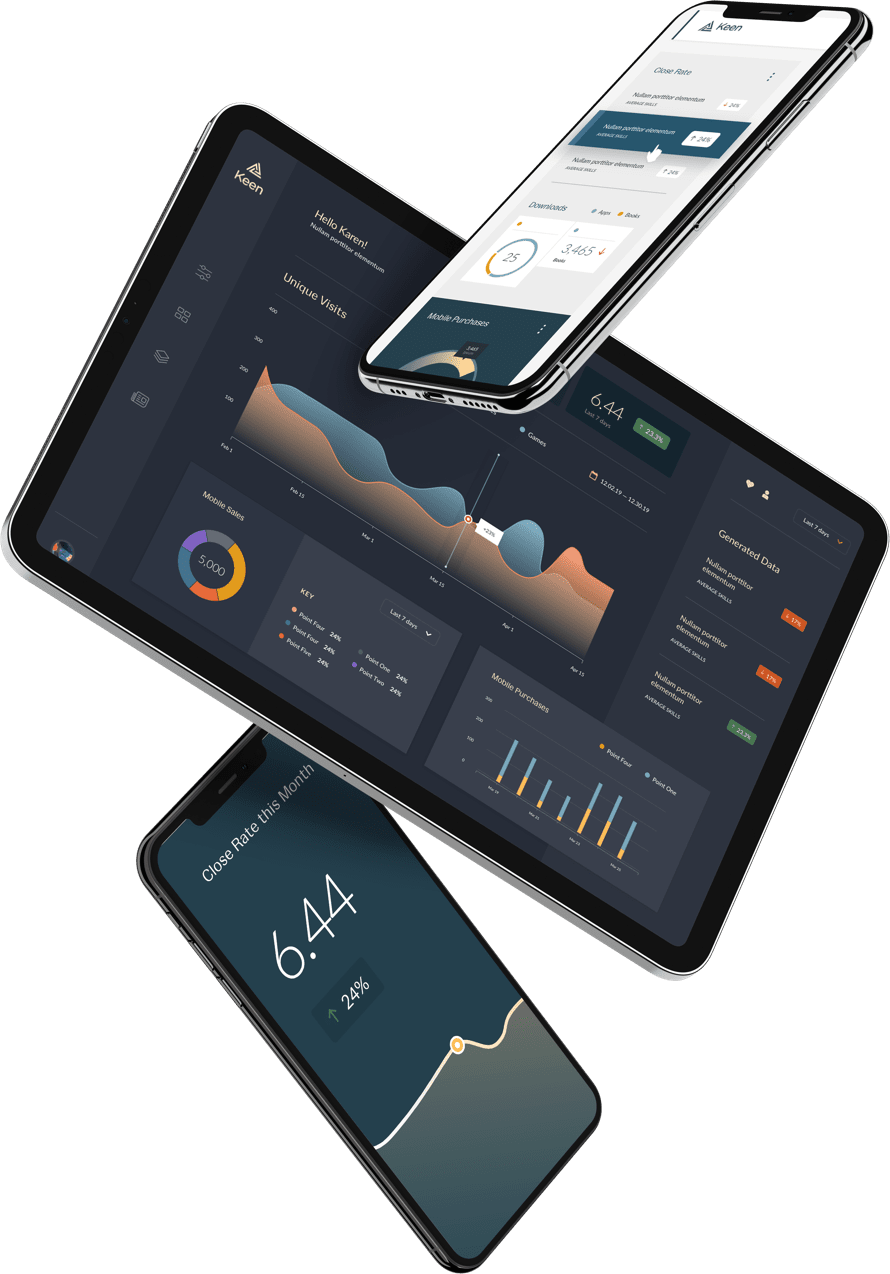Switching jobs terrifies me. I bet it terrifies you too. It’s ok to admit it. We’re all friends here. It turns out that those feelings ramp up even more when you’re considering joining a startup. I’m going to tell you about the things that scared the shit out of me when I first thought about joining Keen IO, and what came of them in the end.
Last year, it felt like all my professional dreams were finally being realized. Here I was — a self-taught, grew-up-in-a-trailer Southern boy — working for Twitter! I joined Twitter as a Site Reliability Engineer and soon rose to manage the omnipresent Observability Team, providing tools for monitoring and visualizing the performance of every aspect of Twitter. You see, I really, really love metrics and providing visibility into complex systems. In fact, I’ve been hacking on this problem in one way or another for most of my 20-year career. But, even with this amazing, complex problem to work on, all was not right with my world…
I photoshopped myself into this picture of Univac II. No, I’m not that fucking old.
Sunday nights started to feel more and more ominous as I dreaded the arrival of the coming work week. All week, I’d run from meeting to meeting, dealing with a nonstop stream of personnel, product, and technical issues. When the end of each day rolled around (all too soon, most days), I’d realize I hadn’t written a lick of code or created a single disruptive idea that day. I was helping my team get right and making the engineers at Twitter happy, but I often felt unfulfilled myself because I valued solving technical and product problems, and I wasn’t getting to do that work.
Sunday I’m biting my nails with anxiety and Friday I’m drunk and riding an inflatable ostrich with a soggy pith helmet. How is this relevant again?
Suffice it to say I wasn’t super happy, and the Bay Area being the land of startups, it’s not surprising that I began to flirt with a few. I eventually met up with Kyle, the CEO of Keen IO, and I quickly felt like I’d found something special. I loved the technology and the culture of Keen IO: Every employee here participates in sales, support, and whatever technical areas they are personally interested in. There is also an aversion to process, unless the team naturally arrives at it.
As Kyle and I discussed our philosophies on growing the business, I began to feel that this was a place where I could be happy and fulfilled while making a real contribution. It was also right up my alley, with their focus on metrics and making sense of them in your business.
Before I knew it, we were talking about an offer. And that’s when I discovered something completely unexpected: I was terrified of joining a startup! Like I said, Keen IO seemed like a great gig, but when I thought about actually doing it, I got cold feet. So I tried to figure out why:
- There were only about a dozen employees at Keen IO, and many of them had known each other for decades. How would they react to an outsider with a new personality and different ideas? Especially one who isn’t shy about sharing those ideas. Would I be comfortable joining the “family” that is a small startup? Would they like me? I have so many great friends at Twitter that this was an important thing to me.
- Technical founders can sometimes be very attached to their work and their implementation. Considering Keen IO was growing fast, it’s likely that big change was on the horizon. Would I get a say in this change? Being a veteran, it’s really important to me that my opinions are heard and considered.
- I have a strong will to do things as “right” as I can, and that has often led to me working in Operations. Would I get pigeonholed into only Ops work simply because I’ve had exposure to Ops at such a huge scale at Twitter? I’m a programmer more than I am anything else, so this was a big question for me. I’ve done my share of rebooting boxes and handling upgrades — noble and necessary work, yes, but not what I wanted to define me.
- I’m used to a big place with fixed titles and well-defined areas of scope. How would I react to being expected to answer support emails, do deep technical work, and take out the trash? Was I romanticizing the idea of a startup too much? Did I really want to do all the things?
- The risks are high for a small startup with big ideas. Was I willing to put in my lot with these crazy people? I’ve got a wife and daughter that I have to consider. Would they understand why I’m leaving the illustrious Twitter they were so proud of me for? Would we end up in a cardboard box or having to move back to our families in Nashville? Would a sharknado hit the — nevermind.
I tossed and turned many nights as I debated each of these fears in my head. I drove my wife crazy guessing, second-guessing, reconsidering, hemming, hawing, and just being an overall pain in the ass.
Two things convinced me to pass on Keen IO and stay where I was: Concessions from my boss that I could focus more on coding and product work, and the very motivating promise of the 9 years’ pay worth of stock I’d be leaving on the table if I left. That would buy me so many shoes!
I’m seriously some kind of pixel wizard. Come at me.
But Keen IO was persistent, and Kyle emailed me one day, subject only: “Will you really be happy in 2014?”
Damn it, Kyle. He was right! Keen IO’s culture, interesting technical work, focus on customer happiness, and my love of the product ultimately convinced me to make the leap.
Fast forward to today: I accepted the job at Keen IO, gave notice and suffered the slings and arrows of leaving a job. After a bit over a month at this job, I can now take stock of my fears and decide how much they really ended up mattering. I can also provide a bit of advice to anyone else looking to make this change:
- Joining a small team can be hard. The team at Keen have been very welcoming, and I feel like I’m already making some really great friends here. Even if you’re an introvert like me, you can set some goals to participate in one or two social activities per week and still take some time to regain your energy and focus. It also helps to find one or two people who share common interests and focus on building relationships with them first. If all else fails, just start yelling at people about your amazing collection of 40+ pairs of Nike Air Max shoes. That gets ’em every time.
You know you want to talk about my shoe collection.
- Making technical decisions is very democratic at Keen IO, and with so many things in motion, it’s often hard to nail down big changes, like making the switch to a new programming language or a new piece of infrastructure. These often take a lot of small conversations rather than the big architecture meetings I was used to. My best advice is to spend time learning about the team and about the choices before suggesting change. Avoid the temptation to change something just to make it familiar. Also, be sure to approach these conversations with empathy. It’s not about ramming your opinion into things. It’s about doing what’s best for the business, the customer, and the culture.
- The risks are still very real. Startups are notoriously fickle, and there are pivots, funding, and personnel changes that loom over us every week. There’s not much I can say here, as it comes down to your personal situation and risk aversion. I worked with my wife to plan for the risks, and we’re happy with the state of things. Startups seem to have flexibility in signing bonuses vs. salary vs. stock. If you can’t have an open conversation about your needs and these factors with the people you’re about to work with, it might not be a good fit. Arrange the compensation to cover your worries. I used a signing bonus to placate my fears. Your recipe might be different.
- Some of you may be wondering about that stock bombshell from earlier. What motivated me to give up all that future money? That turned out to be pretty easy for me, but your mileage may vary. Since a third of my stock was vested, I was already looking at a handsome nest egg. Was sticking around for two more years in a job that was making me unhappy worth it to be become a millionaire? Not for me. I knew that, even if I had “fuck you money,” I’d still want to do exactly the type of thing I’d be doing at Keen IO. Some people would retire and climb mountains or travel the world; I’d just write code and work on a great product. Keen IO felt like that company I’d been looking for my whole career. Why not start doing what I loved now?
If I was a dog I’d be a Corygi. This has nothing to do with this blog post.
In closing, I enjoy my work at Keen IO so much that I had to be dragged from my computer last night for dinner and I woke up early today — a Saturday — to write this post. I find great satisfaction in the work that we’re doing and feel very connected to our users. There are still many days when I feel frustrated that there’s not a department in the company that solves the problems that I don’t want to deal with or when I have trouble finding consensus for some new idea. I also really miss all the amazing friends I made at Twitter. But these troubles are easily offset by having the freedom, impact, and pleasure I get from working at Keen IO. I’m also really happy all the time, and my family has seen the change in my mood. Overall, this has been one of the best decisions of my career, and I’m very excited for the new challenges that Keen IO brings. I don’t regret a thing.



